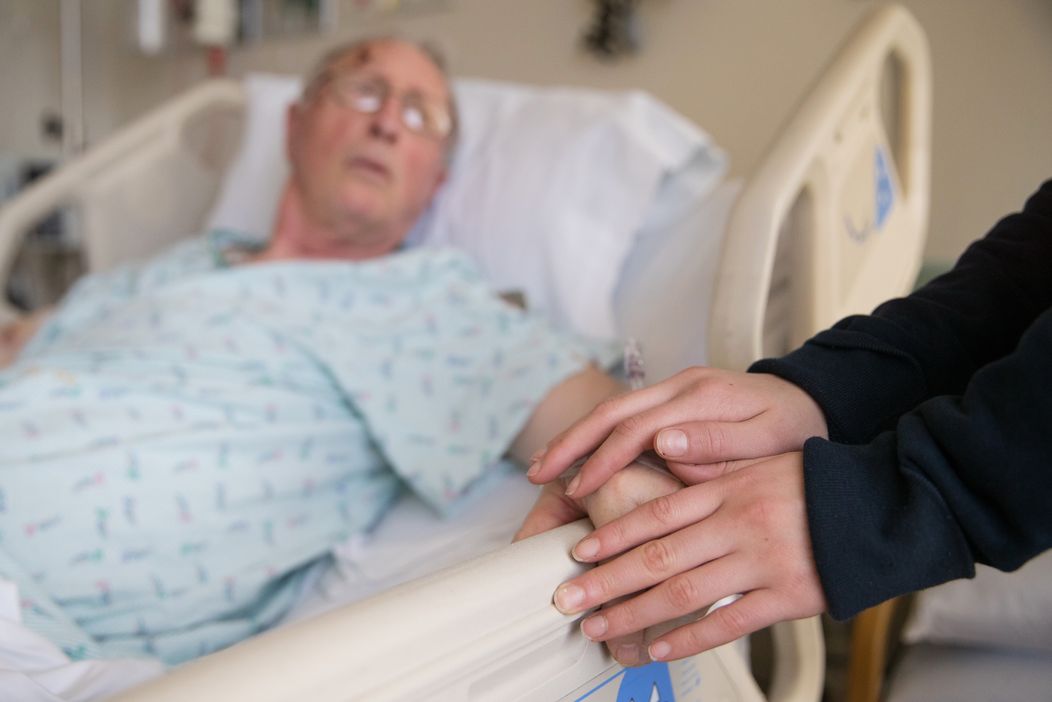
The Dementia Hospital Stay
A hospital stay can be challenging for anyone, but for individuals with dementia, it can be particularly daunting. The unfamiliar surroundings and the presence of strangers can lead to increased confusion and fear. In this article, we’ll explore what a hospital stay entails for someone with dementia and provide insights into how caregivers can navigate this experience.
Hospital Admission for People with Dementia: Unraveling the Reasons
People with Dementia may find themselves in the hospital for various reasons. Understanding the cause of admission is crucial, as it impacts the length and complexity of the hospital stay. Here are some of the most common reasons for hospital stays.
Increased Confusion:
One common reason for hospitalization is a notable increase in confusion experienced by individuals with Dementia. This heightened state of confusion might signal an underlying issue or a change in the person’s health condition. Recognizing and addressing the root cause of this confusion is crucial to providing appropriate care during the hospital stay.
Fainting and Falls:
Individuals with Dementia often face challenges in maintaining balance and coordination. This can lead to incidents of fainting or falls, resulting in injuries. Hospitalization may be necessary to assess and treat injuries and investigate the underlying factors contributing to these incidents. Understanding the circumstances surrounding falls is vital for devising preventive strategies.
Trauma and Injuries:
Trauma or injuries can prompt a hospital visit, whether accidental or resulting from other medical conditions. People with Dementia may be more vulnerable to accidents or injuries due to their cognitive limitations. Identifying the specific nature of the trauma and its impact on the individual’s health is crucial for devising a suitable treatment plan.
Heart Disease:
Individuals with Dementia are not immune to other health conditions, and heart disease is one such example. The complexity of managing both Dementia and heart-related issues requires specialized care. Hospitalization becomes necessary for a comprehensive evaluation of heart health and the implementation of appropriate interventions.
Stomach Issues:
Digestive problems, ranging from mild discomfort to more severe stomach issues, can prompt hospital admission for individuals with Dementia. Identifying the nature and severity of these stomach issues is essential for providing targeted and effective medical care. This includes considerations for the individual’s dietary needs and overall well-being.

Why Understanding the Cause Matters: Impact on Hospital Stay
The reason for hospital admission significantly influences how long a person with Dementia stays in the hospital.
Suppose the admission reason is a medical condition for someone who also has Dementia. Dementia may complicate the treatment plan and prolong the hospitalization because they are unable to follow directions or they become more confused. It is very common for a hospital stay with a common medical condition to be extended for someone with Dementia.
However, they are also at a higher risk for complications during their stay.
If the reason for the hospital visit is increased confusion, the hospital will usually keep them overnight to assess the reason for the change.
Sometimes, the primary caregiver decides they just can’t be a 24-hour caregiver anymore. They believe it is time for placement in an extended care facility, and a hospital stay can be the stepping stone needed to initiate placement.

Hospital Interaction with Dementia Patients: A Complex Challenge
Are you wondering if hospital staff care for your loved one the same way you care for them at home? Here are a few challenges to consider when deciding whether to leave your loved one in the hospital alone.
Not Enough Training:
Hospital workers, such as nurses and other healthcare staff, don’t always get enough training on how to help those with Dementia. Dementia is difficult to understand and requires special knowledge.
Many healthcare workers do not understand there are different types of Dementia with varying behaviors. Their understanding of how to interact with someone with Dementia to prevent escalating behaviors is also limited, which can complicate the care being provided.
Always in a Hurry:
Hospitals operate in a fast-paced environment, and staff members often have demanding schedules. The need to attend to multiple patients, handle administrative tasks, and respond to emergencies can result in a rushed approach to caregiving. Unfortunately, this hurried pace may inadvertently lead to increased frustration and agitation in dementia patients who require more time and patience.

Being Alone in the Hospital: Why it’s Hard for People with Dementia
What happens if you do leave a dementia person alone in the hospital?
Hospitals are Confusing:
Hospitals have many different things going on – strange noises, people walking around in uniforms, and complicated hallways. For someone with Dementia who needs a routine and familiar faces, it can feel really confusing and scary.
Call Buttons are Tricky:
There are buttons to call for help in hospitals. But for people with Dementia, these buttons can be hard to use. It’s like trying to figure out a puzzle. So, if they need something or feel upset, they might be unable to tell anyone.
Simple Things are Tough:
Basic tasks that are taken for granted in a home setting become very difficult for individuals with Dementia in the hospital. Simple activities like ordering food, finding the toilet, using the phone, or managing the television remote can become insurmountable challenges. The inability to perform these tasks independently contributes to a sense of vulnerability and increases the overall distress experienced by the patient.
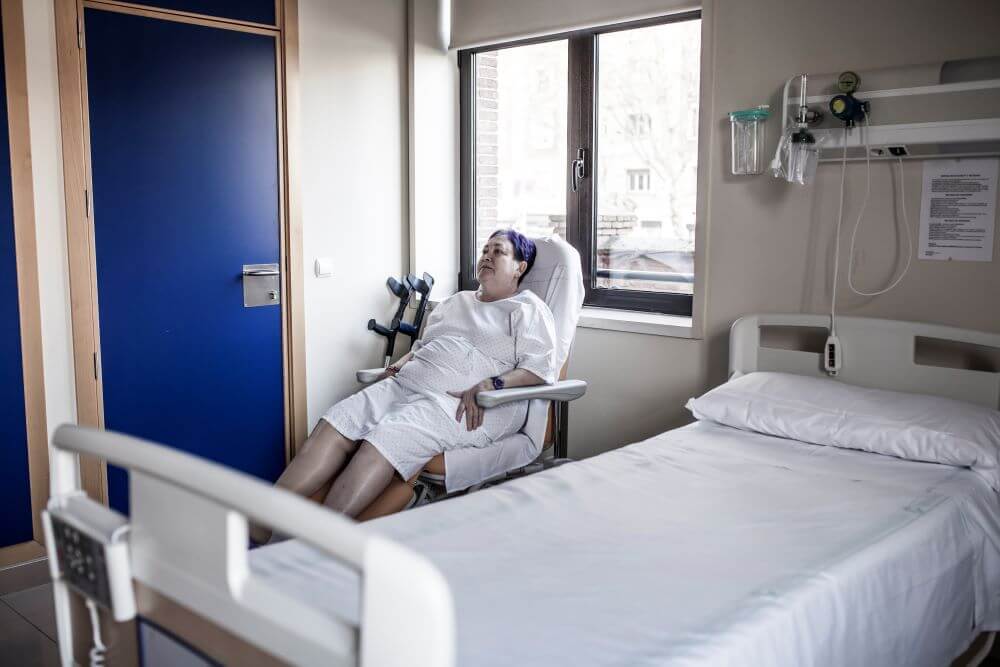
Challenges During the Stay: Navigating a Different Routine
We know keeping someone with Dementia in a routine is the best way to keep them calm and happy, but what happens to their routine in the hospital?
Unfamiliar Faces and Procedures:
Hospitals are filled with unfamiliar faces, including healthcare professionals and other patients. The constant presence of new people can be overwhelming for someone with Dementia, who relies on recognizing familiar individuals for comfort. Additionally, unfamiliar medical procedures and equipment can add to their anxiety and confusion.
Altered Schedules:
Daily routines often change in the hospital. Medication and meal times may not match what the person with Dementia is used to at home. This shift can be confusing, as they rely on familiar routines to feel secure. The changes may affect their overall well-being and contribute to feelings of disorientation.
Meal Times:
Hospital care for patients usually revolves around the hospital’s schedule. Therefore, the medication and meal times are different than at home. Most hospitals switched from scheduled routine trays to self-ordering whenever the patient was hungry.
That works well for the alert and oriented patient, but what about someone with Dementia? Your loved one depends on the staff to order their tray and help them eat. Unfortunately, trays often get ordered late, and when they arrive, they may sit at the desk and get cold.
Keep in mind that there may be ten patients on the unit who all need to be fed, and only three nursing staff members can help. It also may take a while to feed someone with Dementia. Most people in the later stages of Dementia are very slow eaters, and it may take 30-60 minutes to feed one person.
Sleep Disruptions:
Hospitals have different schedules for checking vital signs and other medical procedures, which can interrupt sleep. For someone with Dementia, being woken up from their sleep can be disorienting and lead to increased confusion. Sleep disruptions often contribute to behavioral challenges and may impact the overall mood and well-being of the patient.
Sleep time in the hospital is interrupted every couple of hours for vital signs or toileting. For many Dementia patients, once they settle down and get to sleep, someone they don’t know wakes them up in the middle of the night.
Once they are woken up, they are more confused than usual. A strange person, strange place, and no one they recognize often leads to agitation/aggressive behavior. The hospital staff’s response to this aggressive behavior is usually a behavior medication. This medication has a sedating effect and can last well into the next day, which may result in them sleeping through their meals and more confusion.

The After-effect of a Dementia Hospital Stay
Many family members are surprised to find their loved one has drastically declined after a hospital stay. Recognize that this is a real possibility. A Dementia hospital stay can lead to a decline in several areas.
Increased Confusion:
A stay in the hospital can often lead to heightened confusion for individuals with Dementia. The change in environment, unfamiliar faces, and the hustle and bustle of the hospital setting can contribute to disorientation. This increased confusion is especially noticeable post-hospitalization and may persist for some time as the person adjusts back to their home or care facility.
Exacerbation of Cognitive Decline:
For individuals with Dementia, any disruptions to their routine or environment can exacerbate cognitive decline. The stress of a hospital stay, coupled with the impact of medical procedures and medications, may accelerate the progression of dementia symptoms.
Changes from Anesthesia and Medication Adjustments:
The very nature of a hospital stay involves significant changes. Anesthesia, often used for various procedures, can have lingering effects on cognition and increase confusion. For some people with Dementia, anesthesia seems to push them into the next stage of the disease, where they stay. However, after a while, others bounce back to where they were before the hospitalization.
Additionally, adjustments or changes in their routine medications during the hospitalization process can impact cognitive function, potentially leading to a decline in mental clarity.
Decreased Mobility:
Laying in a hospital bed for an extended period of time leads to weakness, especially in the elderly. Even 2-3 days in bed can cause them not to be able to get themselves up without help. This often leads to someone who was able to walk around at home before their hospitalization requiring 1-2 people just to get them up out of bed.
This is why it is essential for your loved one to get up in the chair for all meals and walk to the toilet.
Bladder Incontinence:
People with dementia struggle with bladder incontinence as the disease progresses. They may have urgency or struggle to recognize the urge to void. Caregivers can recognize the signs at home or even have them on a scheduled toileting routine.
In the hospital, they may need help calling for staff to help them to the toilet, and staff may not get to their room promptly. This leads to an increase in incontinence, and they quickly adjust to urinating while lying in bed. This often continues when they are discharged from the hospital.
Your loved one may also have a urinary catheter (internal or external) placed while they are in the hospital. This can also lead to forgetting how to void. The longer they are in the bed with a catheter, the weaker and less mobile they will become.
Most people don’t realize that going to the toilet several times a day is often the primary source of exercise for the elderly. Maintaining this routine is imperative to maintain their mobility.
Dementia Hospital Stay Beds
The length of stay in a hospital varies for those with Dementia, especially if there are complications. However, they must be discharged from the hospital once they are medically stable. Many families struggle with the decision to release the patient and try to keep their loved ones in the hospital longer.
The COVID-19 pandemic stressed all hospitals and created many complicated patients who still go in and out of the hospital.
As a result, hospital beds are in high demand, and the demand shows no signs of letting up.
Hospitals are now caring for sicker and more severe patients than ever before. Extended care facilities have become step-down units.
Medical issues that used to require a week in the hospital are now only requiring a two—to three-day stay. Many patients are sent to a facility to continue physical therapy, IV antibiotics, or other medical treatment.
Discharge Planning for a Dementia Hospital Stay
Discharge planning starts early in the hospitalization process, focusing on home care needs, safety, and available resources. Every hospital has several discharge specialists. Their title may be a discharge planner or a case manager, but this is the person you will need to talk to about needs at the time of discharge.
It helps if you understand the process and are prepared to talk to them about the discharge plan. Many family members are shocked when the discharge planner shows up ready to send their loved one out of the hospital.
Caregivers should talk with discharge specialists to ensure a smooth transition and explore options, including the possibility of extended care facilities.
Extended care facilities are usually discussed for Dementia patients in the middle to late stages, especially if the family is struggling or there are signs of Caregiver Burnout. This is the time to review all the options available in your area. The hospital discharge planner can access many resources you may not know even exist.
If your loved one is in the hospital for more than 2-3 days, they may need to go to a rehab facility. The reason is usually due to the need for physical therapy for strengthening, IV antibiotics, or respite care. So don’t be surprised when they bring it up.

What is Hospital-Induced Delirium?
Delirium is scary! It comes on quickly and can become a medical emergency. Unfortunately, many hospitalized Dementia patients develop Delirium. According to John Hopkins, 80% of ICU patients and 1/3 of all hospital patients develop Delirium. Very sick patients and older adults who are hospitalized are especially at risk. “Developing delirium is linked to worse outcomes in older people in the hospital, and it is associated with a higher risk of declining health and death.”
Various factors can lead to Delirium. The most common include surgery, infection, isolation, dehydration, poor nutrition, and medications.
Delirium can last for an hour or days; some people never return to their previous state. It is prevalent in elderly hospitalized people, especially those with Dementia. It is a daily occurrence in most hospitals.
Treatment for Delirium consists of trying to identify the cause. Unfortunately, people who develop Delirium often become very aggressive and are given behavior medications to keep them from harming themselves or others. Generally, this medication can add to their confusion.
The signs of Delirium are:
Drowsiness
Confusion (new came on quickly)
Feeling disoriented
Hallucinations (seeing or hearing things not there)
Delusions (having false or unrealistic beliefs or opinions)
Delirium is not limited to hospital patients but can also happen at home. If you suspect delirium, notify your healthcare provider immediately
How Family Can Help While in the Hospital
Family members must be actively involved during the hospital stay. They can play vital roles in maintaining a comprehensive caregivers’ notebook with essential information, staying with the patient if possible, and advocating for their needs.
Be prepared. Keep a list of their medications, doctors, and current conditions. Have all their information in one place, ready to grab and take with you.
It should include:
- The name they liked to be called
- Who is the power of attorney
- Foods they like to eat
- Drinks they like
- Their daily routine
- Medication routine
- How do they bathe, and when
- Communication tips
- How active are they
- Toileting routine
- Sleep pattern
- Topics to reminisce about
- Any religious or cultural preferences
- What calms them when agitated
- Types of behaviors they have
The Caregivers Notebook is the perfect place to keep all the needed information.
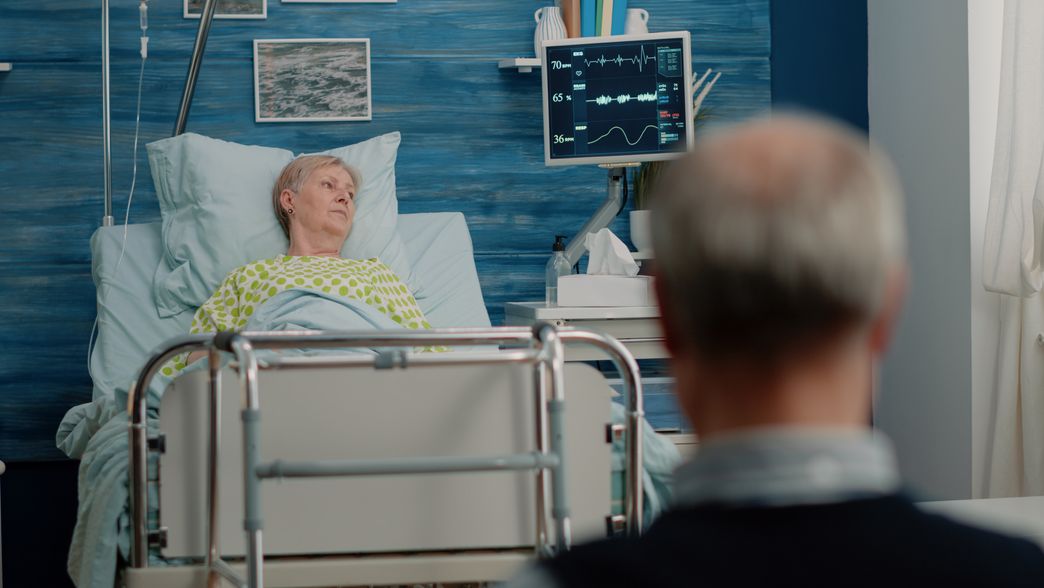
Stay With Them if Possible
You or another family member should stay with them if at all possible. Many caregivers consider hospitalization a break from caregiving and stay home to get some much-needed rest. However, you are still needed. Nurses and doctors will need you to help answer questions and to be the patient liaison for your loved one.
So, if possible, pack a bag and set up camp in that room. Be there to recognize if Delirium is coming on and alert the staff to the changes. Here are a few tips to help both of you during a hospitalization.
- Ask for a recliner so you have a comfortable place to sleep
- Help the person fill out menu requests
- Remove personal clothes from sight
- Listen to soothing music or try comforting rituals, such as reading, praying, singing, or reminiscing
- Bring in familiar objects, such as photographs of family members or a pet
- Build a relationship with the nursing staff
Do not assume that the staff understands the realities of caring for someone with Dementia.
Instead, help them to understand your loved one and their needs. Try to avoid taking your loved one to the hospital if possible, for both your sakes.
Know your loved one’s wishes. Learn the difference between aggressive care and comfort care and what they desire as the disease progresses. If you or a loved one is in the early stages of the disease, please take a look at completing the Dementia Advanced Directives.
It is imperative to know what type of medical care is wanted as Dementia worsens.
The Role of Caregivers: Patient Advocates for Loved Ones with Dementia
When your loved one is in the hospital, they need you to be more than just their caregiver. They need you to become their Patient Liaison.
Effective Communication:
Patient Liaisons play a pivotal role as advocates for their loved ones with Dementia. Communicating the patient’s unique needs, preferences, and routines to the hospital staff is essential. This information empowers healthcare professionals to provide more personalized and considerate care. Sharing details about what calms the patient, their communication style, and any specific triggers helps create a more supportive environment.
Providing Insight:
Patient Liaisons possess invaluable insights into the behavioral patterns and idiosyncrasies of the person with Dementia. This knowledge enables hospital staff to tailor their approach, minimizing potential sources of distress. Whether it’s a certain soothing gesture, a preferred way of communication, or activities that bring comfort, these insights guide healthcare professionals in delivering more patient-centered care.
Collaboration with Staff:
Establishing an open line of communication between caregivers and hospital staff fosters collaboration. Patient Liaisons can share information during admission, engage in regular updates with the care team, and participate in care planning discussions.
This collaborative approach ensures that the hospital staff is better equipped to meet the unique needs of the dementia patient.
In summary, acknowledging the challenges faced by hospital staff in dementia care and actively engaging with healthcare professionals as a caregiver and a Patient Liaison can significantly enhance the overall well-being of your loved one during their hospital stay.
Effective communication becomes the bridge between the medical team’s expertise and caregivers’ intimate knowledge of their loved ones.

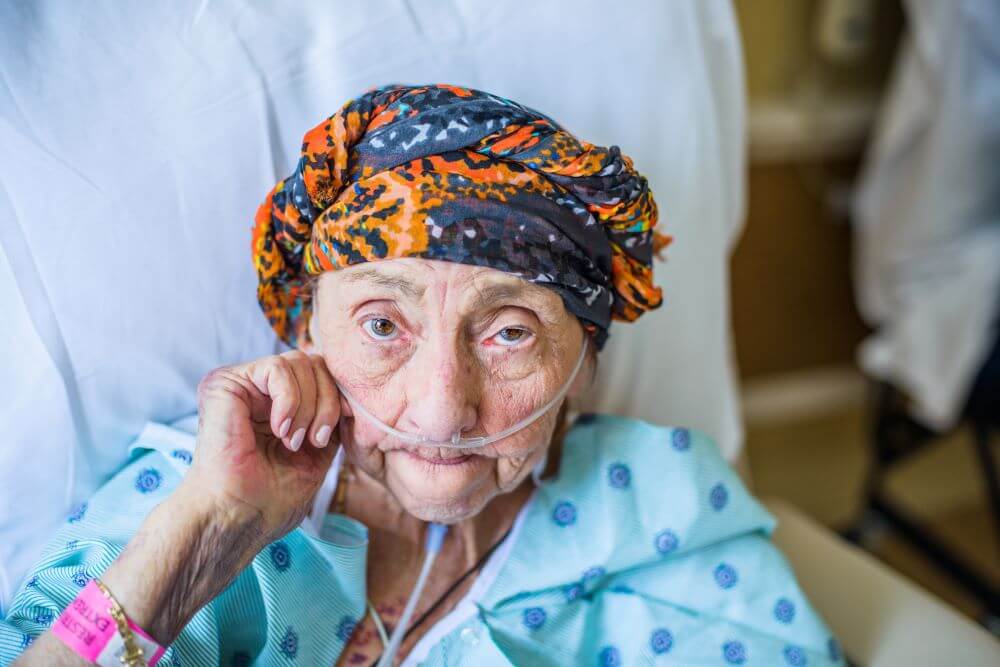
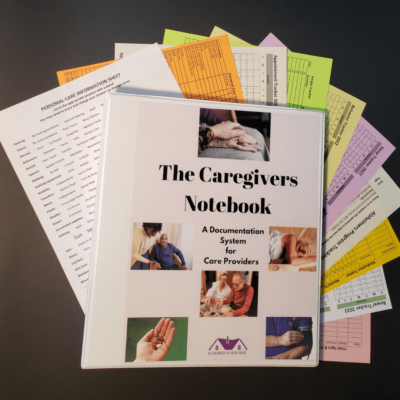







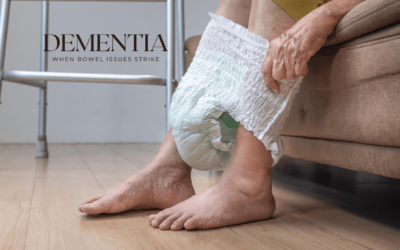
Great article! Wonderful information and definitely will put ideas to use. Thank you!